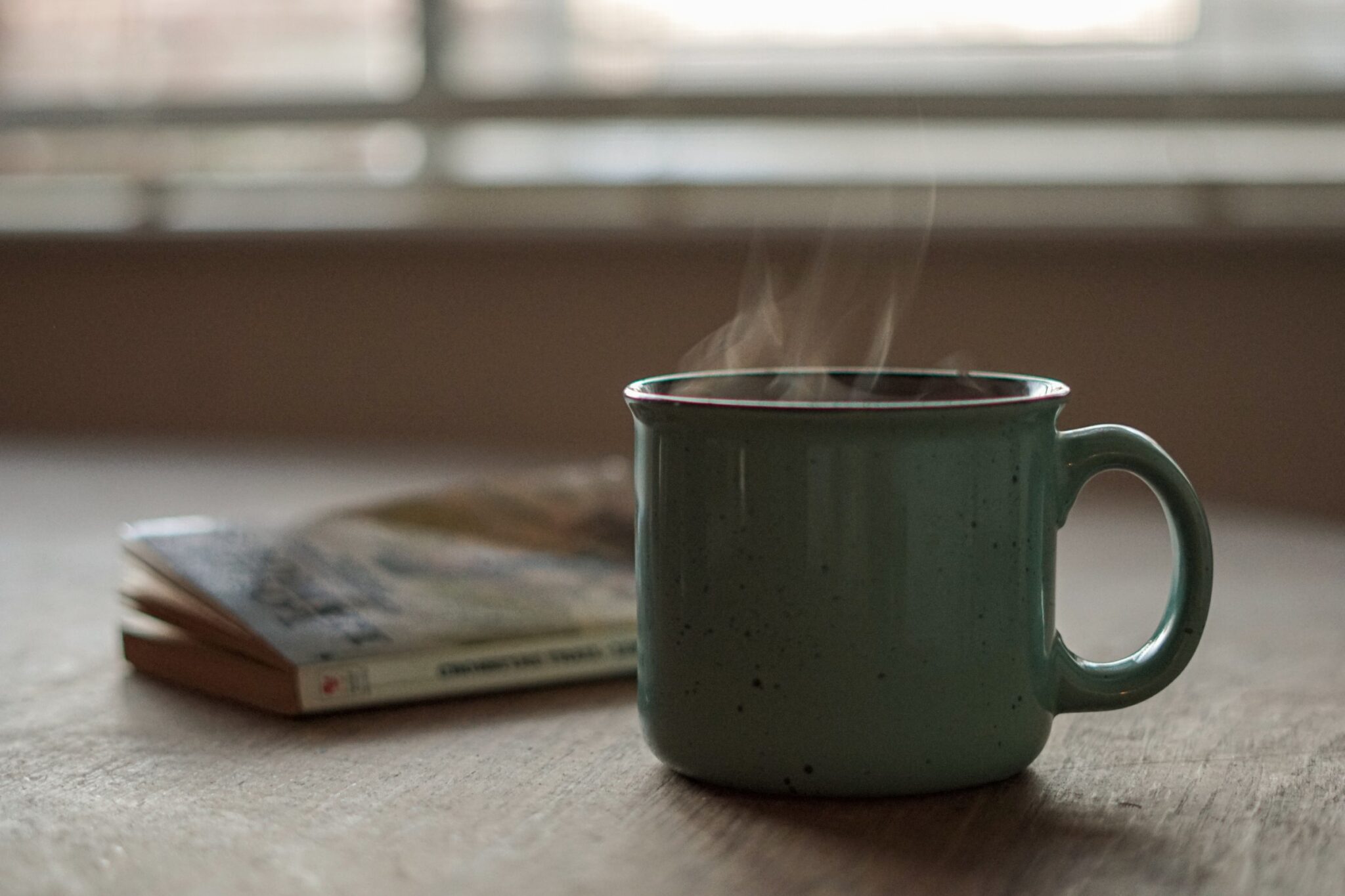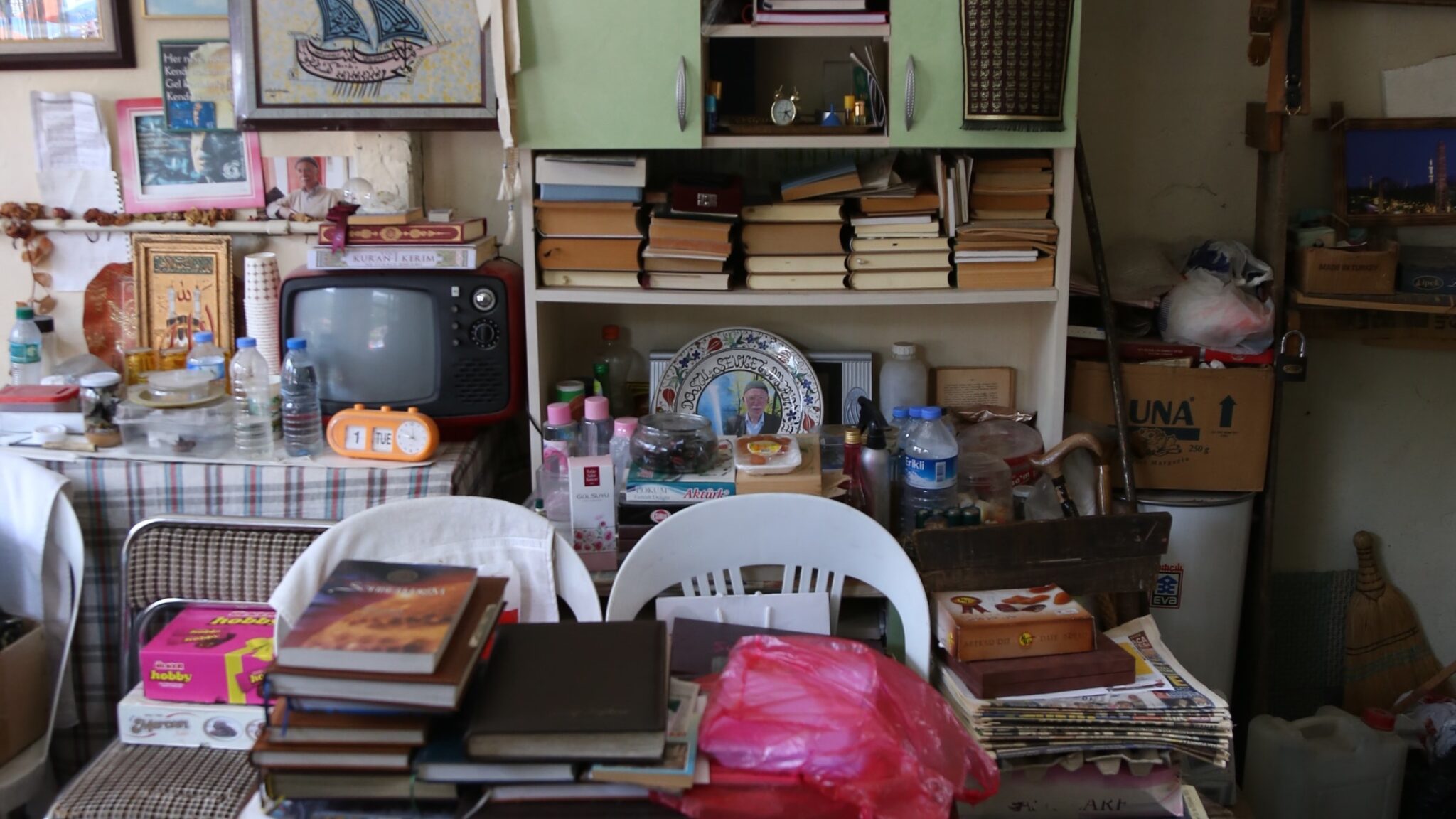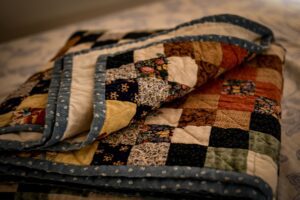
Our Connections with Authors/Books
November 10, 2021
Holiday Survival Tip: Enjoy
December 15, 2021This post is part of a series exploring how our various relationships affect our resilience. Check out other posts in the series: Resilience in Relationship, Connecting to Our Past Selves, Casual Connections, Connecting with Nature, Genetic Connections, Family of Origin, Chosen Family, Connecting with the Infinite, Staying in Touch, Our Connection to Work, and Our Connections with Authors/Books.
When is too much of a good thing too much? Americans own a lot of things. Beyond the genuine need for safe and comfortable housing, reliable transportation, and healthy air, water, and food we have a lot of stuff. How do your possessions increase or disrupt your resilience?
There is a sense in which your possessions own you. You provide them a space, clean them, maintain them, and rearrange them on a regular basis. Sometimes you trip over them or have nowhere to sit because they are in the way. And yet, it can be hard to get rid of them. Books and magazines are a weakness for me. In last week’s post, I talked about how I turn to books when life gets challenging. I read, write, and teach for a living. The small room in our house that would be a perfect office for me is so full of books and papers that it is unusable as an office. This does not enhance my resilience.

Not Laura’s Actual Office
When I look at this room, I feel frustrated. My critical inner voice suggests that I am less of a professional because I don’t have this space organized. I joke that this is what the inside of my brain looks like – words, documents, and ideas stacked with little apparent order. Gifts, baskets, and a cozy blanket tumbled together on the couch. Sometimes, I clear it off enough to sit down and work in this space. Recently, I cleared out several stacks making it is easier to access the printer. I got rid of the desk that reminded me of someone who was a negative force in my life. Taking care of this room is an act of self-care; it is setting myself up for success.
Stuff carries emotional energy based on many factors: what or who it reminds you of, its cost, its perceived value, if or how you use it, its usefulness now or in the future. Deciding which items to keep can be difficult. One aspect of being resilient is moving forward. Letting go of things that are not helpful frees our energy to move forward. Getting rid of that desk was a good choice. My emotions are freed up without the regular reminder of a difficult relationship. Plus, I now have more physical space available in my office.
Two Questions
Do your things enhance or disrupt your resilience? There are a lot of methods for deciding what to keep and what to get rid of. When it comes to objects, we use often (pens, cups, shirts) I ask two questions:
-
- How many do I need?
- What container will they fit in?
Deciding in advance that I need X number and/or that once this container is full all the rest will be re-homed makes decisions easier. Having tools we need increases our ability to face the demands in life; having too much doesn’t allow us the room to work. How do you decide what is enough?
Sentimental items can be the hardest to get rid of due to your connection to what they represent. I realized one day that I was keeping everything that reminded me of everyone who was important to me. It dawned on me that those people (the current version of them) were mostly still in my life, and that I was somehow trying to freeze time. This led me to consciously letting go of who they used to be, and embracing who they are. Embracing my loved ones as they are today helps reduce my attachment to the stuff that reminds me of them. Then I can use the number rule – how many items do I need from this person or that time in my life? This has allowed me to let things go more easily.
Some Benefits
Your stuff can support your emotional and physical well-being. I have a quilt that keeps me warm not only because it is well made, but also because it was a handmade gift from a cousin. Handmade items remind me that there is much that I can do or learn: perfectly turned wooden bowl, hand dipped candles, crocheted blanket. Other items speak of a legacy – my and my mother’s charm bracelets.
Some stuff enhances down time – games, craft supplies, sport, and hobby gear. These allow us to express ourselves, exercise, and connect with others. Other stuff is vital for how we make a living. There are a lot of experts with ideas on how to manage, simplify or organize your stuff. Most emphasize the need for empty space. We need space to move, space to rest our eyes, space for new beginnings. Does your stuff leave room for space? I find that as I focus on my goals it is easier to let go of the extra stuff. I am less anxious that “I might need it someday.”
What is your relationship with your stuff? How does it impact your resilience?
Share this post with a friend, say hi on the Facebook page or send an email to resilience@LearnModelTeach.com
Peace,
Laura A. Gaines







